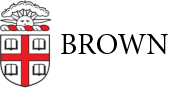The following list of frequently asked questions supplements Brown's Copyright Infringement Policy.
What is copyright?
Copyright is legal protection of intellectual property, in whatever medium, that is provided for by the laws of the United States to the owners of copyright. Types of works that are covered by copyright law include, but are not limited to, literary, dramatic, musical, artistic, pictorial, graphic, film and multimedia works.
What is the current law concerning digital copyright?
The Digital Millennium Copyright Act (DMCA), signed into law in 1998, recognizes that digital transmission of works adds complexity to the Copyright Law. The DMCA provides non-profit educational institutions with some protections, if individual members of the community violate the law, provided that they strive to ensure the expeditious take down of infringing material whenever it is brought to their attention.
DMCA infractions can result in serious consequences regarding activities of faculty, graduate students, or staff who are performing teaching or research functions if the university has received more than two notices of infringement against an individual within a three-year period.
Universities and individuals can be subject to the imposition of substantial damages for copyright infringement incidents relating to the use of University network services. In a civil action, the individual infringer may be liable for either actual damages or statutory damages of up to $30,000 (which may be increased to up to $150,000 if the court finds the infringement was willful). In addition, individual infringers may be subject to criminal prosecution. Criminal penalties include up to ten years imprisonment depending on the nature of the violation.
In addition, the Higher Education Opportunity Act (HEOA) of 2008 requires all U.S. colleges and universities deal with unauthorized file sharing on campus networks, imposing three general requirements on them. More about Brown's compliance with the HEOA.
Specifically, is sharing and downloading music files and videos illegal?
It is true that some copyright holders give official permission to download music and video files and you might be able to find a limited number that are not copyright protected. It is also true that some files are copyright free and others can be legally obtained through subscription services. However, most music and video files that are shared do not fall into any of these categories.
US Copyright Law allows you to create copies of music and videos only for the songs to which you already have rights. That usually means you purchased a file via a subscription service. US Copyright Law allows you to make a copy of a purchased file only for your personal use. Personal use does not mean that you can give a copy to other people, or sell a copy of it.
What are legal alternatives?
The Internet offers a variety of legal entertainment alternatives, whether downloads or streaming, free or fee-based, DRM or DRM-free, well-known artists or surprising discoveries. EDUCAUSE (a community of IT leaders and professionals committed to advancing higher education) has identified a long list of these, cataloged at Legal Sources of Online Content. See also Use P2P File-sharing Software Safely & Legally.
How do you get caught violating copyright law?
Copyright holders represented by organizations such as the Recording Industry Association of America, the Business Software Association, and the Motion Picture Association of America are applying serious efforts to stop the infringing downloads of copyrighted music, movies, and software. The companies or their agents locate possible copyright infringements by using automated systems.
When we get a violation notice, Brown locates the IP address and whenever possible, the user of that address. At that point, Brown is required to act on the notification.
How do you report a copyright infringement?
You can report alleged copyright infringements on Brown University systems or direct other copyright questions to Copyright@brown.edu.
